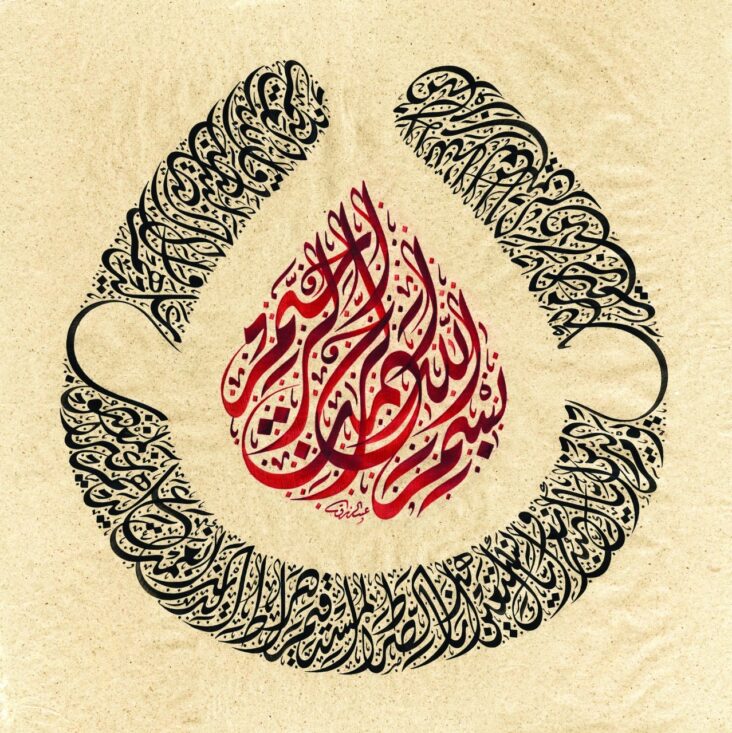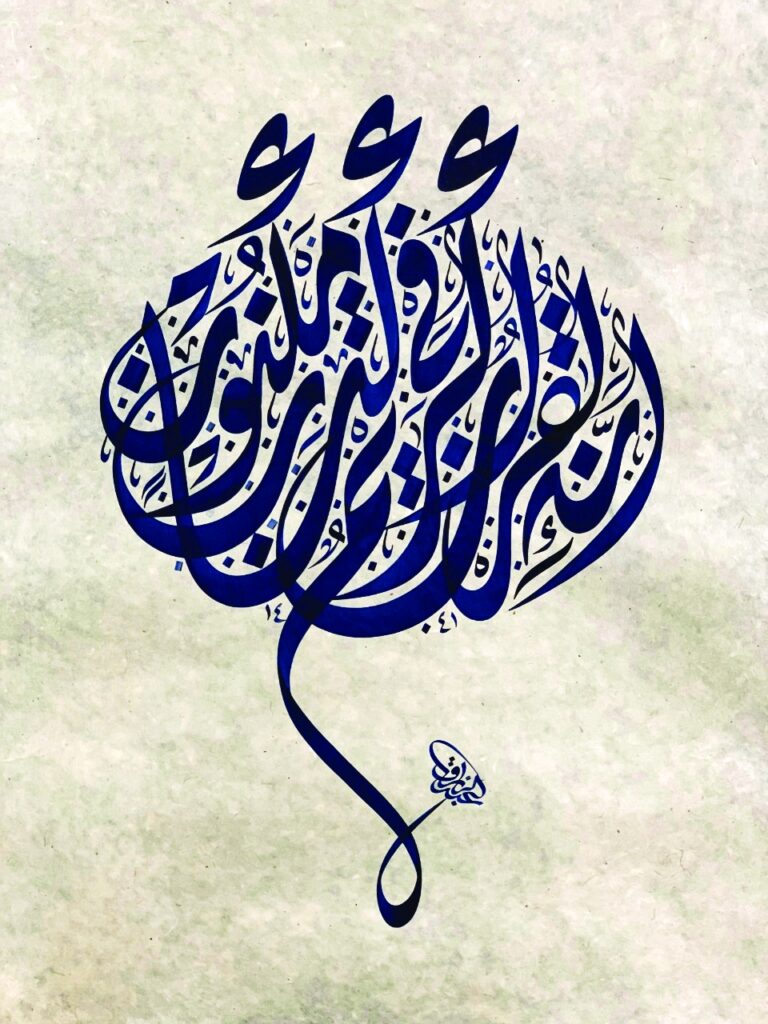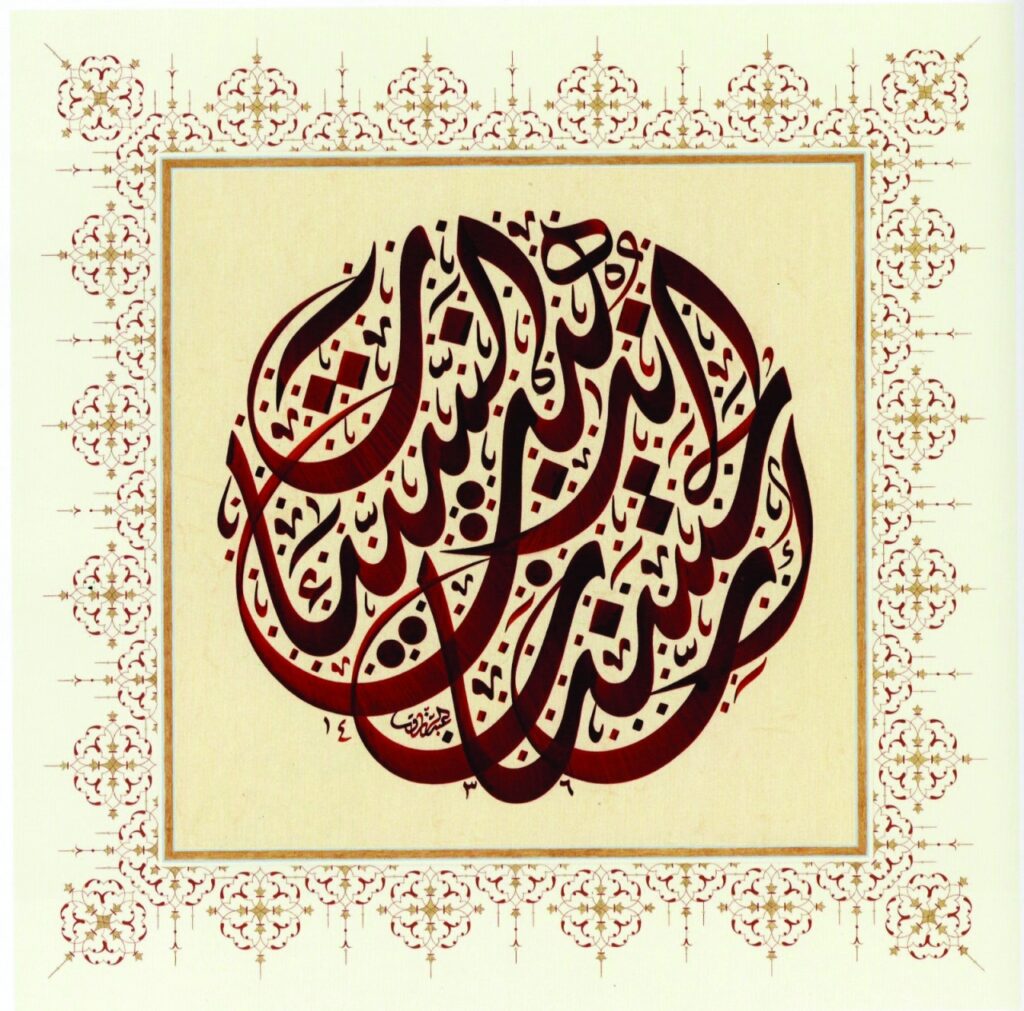Dubai Culture Highlights The Aesthetics Of Arabic Calligraphy

Dubai Culture and Arts Authority, (Dubai Culture), is opening the eyes of the local community, to present to them the origins of an ancient Middle Easternartform through its ‘Arabic Calligraphy Art’project. This represents a creative platform through which the Authority interacts with Arabic calligraphy enthusiasts, giving the opportunity to learn it and develop their skills. The project, running from 27 November until May 2023, is born out of Dubai Culture’s commitment to preserving calligraphy and consolidating the status of the Arabic language and its aesthetics.
Dubai Culture has opened this to all, providing a set of training courses that focus on teaching the origins of ruq’a fonts, diwani and diwani al-jali, under the supervision of the artist, calligrapher, and Arabic language expert, Zaid Ahmed Amin Al-Athamy. Participants will undergo an intensive educational programme to master the methods and techniques of writing in three calligraphy fonts, as well as learning about the formation of calligraphy and methods of formulating them in different artistic ways.
The project, hosted by AlSafa Art and DesignLibrary, AlTwar Library, Al Jalila Cultural Centre for Children, and the Dubai Center for People of Determination, includes a series of workshops that shed light on methods for preparing paintings, types of inks, treated paper, and writing sticks, in addition to designing logos using Arabic letters.
Khalil Abdulwahid, Director of the Fine Arts Department at Dubai Culture, said: “Calligraphy is one of the creative tools of expression in the Arab region. Arabic calligraphy is celebrated by Dubai Culture. This sheds light on the aesthetics of the original contemporary and classic Arabic calligraphy, which will educate on the presence of the form and impress its importance onto the public.” He explained that the project provides an opportunity for everyone to learn the origins of Arabic calligraphy and hone their skills in it.
Khalil added:“Dubai Culture seeks, through the project, to empower creative talent, particularly its commitment to invest in youth.The energy to aspire to study Arabic calligraphy, its history and philosophy, is something worth encouraging. Dubai should be a global destination for learning the various forms of Arabic calligraphy.”
Abdulwahid affirmed that the project intends to enhance creativity in Dubai, by giving everyone the opportunity to learn about new experiences in this art, noting that the courses were designed to enable participants to fully master three particular elements, and that the best the work resulting from these courses will be displayed at the Dubai International Arabic CalligraphyExhibition.
Dubai Culture expanded the remits of this project to also look at the Arabic language and its effective impact on enhancing creativity and shaping community and self-identity.
Abdulwahid stated that the focus on the Arabic language in this project is part of Dubai Culture’s keenness to consolidate the status of the Arabic language and to preserve its aesthetic values, adding: “The project contributes to the promotion and advancement of the Arabic language, as it represents the spirit of national identity.Through this series of lectures and workshops, Dubai Culture will discuss the impact of language on leadership, innovation, excellence, the secret music of letter movements, and others.
The project, forages 15 and above, through its theoretical and practical aspects, reviews the aesthetics, philosophy and history of Arabic calligraphy, and demonstrates the values of creativity and innovation in its formation.
Dubai Culture seeks through the project to provide a suitable environment for creators that enables them to succeed and develop, and to contribute to supporting Dubai’s creative economy, to achieve its vision to cement Dubai’s position as a global centre for culture, an incubator for creativity and a thriving hub for talent.




